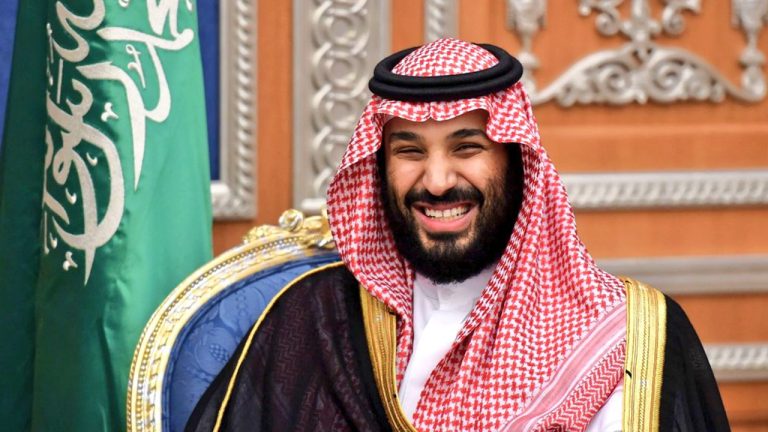Saudi Arabia Extends Oil Production Cuts, Further Irking US Officials
Publikováno: 3.8.2023
 Saudi Arabia announced it will continue limiting oil production through September, extending output reductions that have drawn criticism from Washington. Riyadh Holds Firm on Oil Output Limits Saudi Arabia said Thursday it will keep oil production nearly one million barrels per day below its quota for another month, according to a statement from the Saudi […]
Saudi Arabia announced it will continue limiting oil production through September, extending output reductions that have drawn criticism from Washington. Riyadh Holds Firm on Oil Output Limits Saudi Arabia said Thursday it will keep oil production nearly one million barrels per day below its quota for another month, according to a statement from the Saudi […]

Saudi Arabia announced it will continue limiting oil production through September, extending output reductions that have drawn criticism from Washington.
Riyadh Holds Firm on Oil Output Limits
Saudi Arabia said Thursday it will keep oil production nearly one million barrels per day below its quota for another month, according to a statement from the Saudi Ministry of Energy reported by the state-run Saudi Press Agency.
The voluntary supply restraint, which began in July alongside Russia’s 300,000 barrel per day cut, aims to prop up oil prices amid concerns over slowing economic growth. But prior decisions like this one have frustrated U.S. officials who have urged producers to raise output to lower fuel costs.
BREAKING: Saudi Arabia has extended its 1-million barrel oil cut to Sept
Oil is up 2% on the day as it continues its uptrend from June 2023
— Game of Trades (@GameofTrades_) August 3, 2023
When OPEC+ first unveiled plans in April to trim two million barrels daily, including one million fewer barrels from Riyadh, the White House said at the time that the move was not advisable. Though crude prices have since declined, pump prices in the U.S. recently hit nine-month highs.
Oil prices have moved higher in response to the announcement from Saudi Arabia that it will maintain its voluntary (1 mbd) cut through September and that this could be both "extended" and "deepened."#economy#econtwitter#oil#SaudiArabia
— Mohamed A. El-Erian (@elerianm) August 3, 2023
Further OPEC+ curbs will likely frustrate Biden officials focused on taming inflation. Speaking with CNN Business, the vice president of energy futures at Mizuho Securities, Robert Yawger, told CNN’s news desk that Russia and Saudi Arabia are dependent on high oil prices.
“It flies in the face of the U.S. effort to tame inflation,” Yawger remarked to CNN.
U.S. gas prices are at an average of $3.869 per gallon of gasoline and last week the average was around $3.711 per gallon. Last summer in June 2022, the price at the pumps in the U.S. tapped an all-time high average of $5.02 per gallon.
“$4 is the line in the sand,” Yawger told the news publication. “Once you get to $4 you get demand destruction. It kills the golden goose,” the Mizuho Securities executive added. Some analysts are attributing the high gas prices in the U.S. to “the extreme heat and the heatwaves.”
In June 2023, Saudi Energy minister prince Abdulaziz bin Salman defended the voluntary cuts in oil production.
Speaking with CNBC’s Dan Murphy, Abdulaziz said, “It was just our sensibility, if you will call it, that the environment was not sufficiently allowing confidence to be there. So taking a precautionary measure tends to put you on the safe side. And it is part of the typical rhythm that we have installed in OPEC, which is being proactive, being preemptive. That tool is with us. It doesn’t mean we have certainty that things will go sour or left or right.”
What do you think about Saudi Arabia keeping to its oil cuts for another month? Share your thoughts and opinions about this subject in the comments section below.